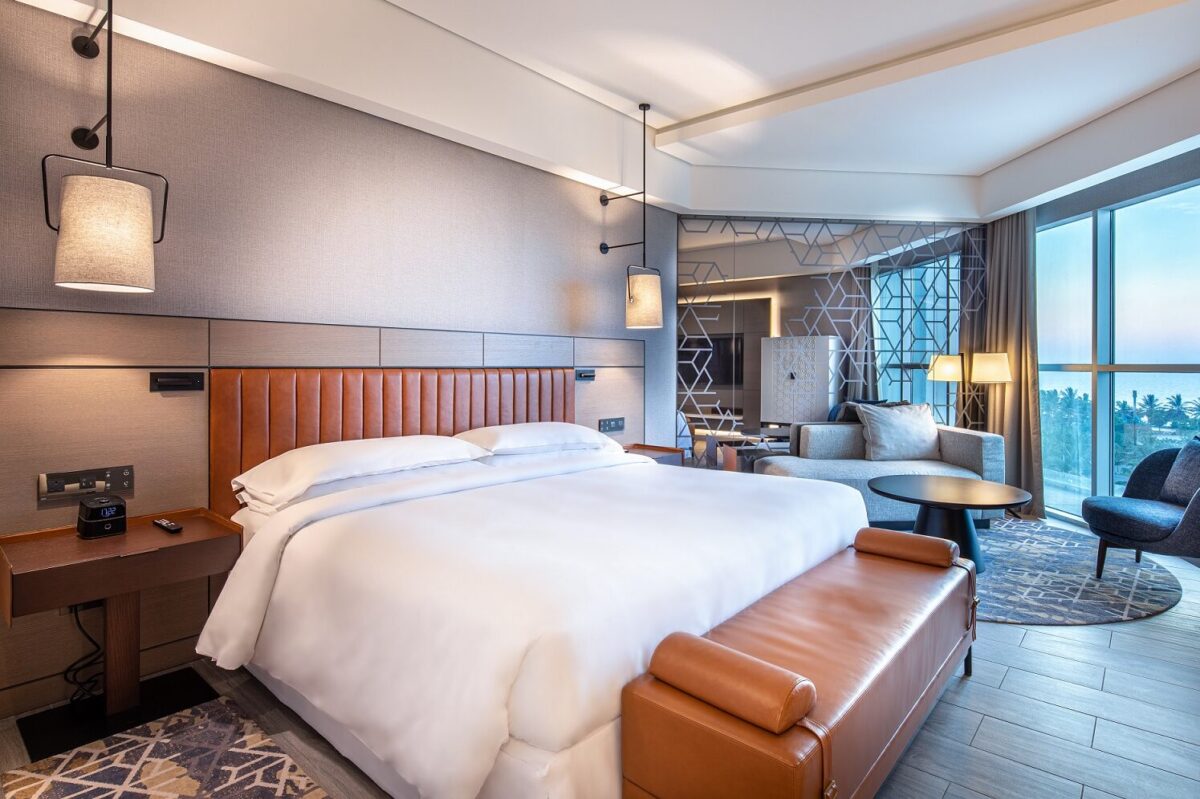Skift Take
Reliable, accessible guest data is like gold for hotels interested in the next generation of customer service. More deals that can capitalize on that are likely on the way.
Sojern, the business-to-business marketing platform for travel companies, is moving into a new sector of hotel services through an acquisition.
The company said Tuesday that it has acquired California-based VenueLytics, a platform that provides guest management and communications software for independent hotels.
Sojern is not disclosing the acquisition price or terms of the deal. The company is also not disclosing the number of clients or employees from VenueLytics that are joining Sojern.
LinkedIn lists 22 people as employees of VenueLytics.
The tech from VenueLytics will power the new Sojern Guest Experience Solutions business. Baskar Manivannan, the VenueLytics co-founder and CEO, is joining Sojern to lead that business. Suryanarayana Mangipudi, another co-founder and head of technology, is joining the technology team at Sojern.
Sojern historically has focused on its AI-powered platform that uses customer data to help hotels and other travel company clients make more informed marketing decisions, meant to drive more direct bookings.
Sojern says it works with more than 10,000 travel companies worldwide.
In the age of post-pandemic financial recovery and a labor shortage, those clients have been asking for a way to use Sojern’s data to drive revenue beyond securing bookings alone, said Kurt Weinsheimer, chief solutions officer for Sojern.
“For hoteliers, for a lot of them, that’s kind of the starting line. Getting that direct booking is just the beginning of that guest journey,” Weinsheimer said.
The new technology coming on board includes an AI chatbot that can automatically send pre-stay greetings as well as automate guest interactions, meant to free up front desk staff for more complicated work. That chatbot includes underlying AI technology that analyzes customer data and makes personalized upsell recommendations before and during the stay.
VenueLytics is in the early stages of integrating generative AI from Google and OpenAI into the chatbot tool.
The VenueLytics website published a blog post listing the top 10 requests from guests through the AI concierge. It highlights how each interaction could lead to an upsell. A question about check-out time, for example, could lead to the chatbot offering an option to pay more for a late check-out. Or a question about ice could lead to the chatbot offering ice delivery along with drinks.
“Being able to do this quickly for that mobile-first guest … and do it when hotels are short staffed is critically important,” Weinsheimer said. “We’ve seen hotels have up to a 70% reduction in front desk calls by implementing, for example, this AI smart concierge.”
One of VenueLytics’s main customers is Grupo Posadas, the publicly traded hotel company in Mexico with more than 180 resorts and hotels.
Leslie Gomez, director of quality, standards, and innovation for Grupo Posadas, said in a statement that customers purchased services more than 53,000 times through the VenueLytics chatbot over the last nine months, and guests that used it had a net promoter score — a common measurement for customer service — more than 19 points higher.
There are a lot of vendors in various aspects of guest messaging and other areas touched by the VenueLytics tech. Hotels could choose any of them, but he said the key is that clients will have access to the same guest data that Sojern uses for its targeted advertising. Especially because guest messaging is a fairly nascent sector for the hotel industry, he believes that gives Sojern a leg up.
“One of the biggest challenges that our customers talk about is they’re overwhelmed by guest data, and that it’s siloed in all these different places, making it really hard to use,” Weinsheimer said. “What we’re able to do is, is bring it all together … and do that all on a single data platform with one partner, we think that’s a really powerful differentiator for us.”
The topics of data management and personalization were highlights at the HITEC conference in Toronto late last month, which brought hotel and tech professionals to discuss the future of the industry.
In an effort to meet customer demand for a hotel industry that offers seamless high-tech service and personalization, hotel companies are increasingly moving to the cloud and implementing different solutions to make that a reality.
That’s also the long-term potential industry leaders see for generative AI — answering a demand that customers have for a personalized travel concierge service from beginning to end.
Sojern executives believe this move aligns with the way the industry is heading.
“The future of travel marketing is going to be driving permission-based personalization,” Weinsheimer said. “We see that that’s going to be a combination of advertising and marketing, and personalized communication, throughout the customer journey. We see that this is the beginning of that combined journey.”
Skift AI Travel Newsletter
AI coverage across travel sectors that’s focused on separating trendy moves from good ideas – in your inbox every Friday.
Have a confidential tip for Skift? Get in touch
Tags: artificial intelligence, chatbots, data, direct booking, emerging technology, hotel tech, hotel tech stack, mergers and acquisitions, sojern
